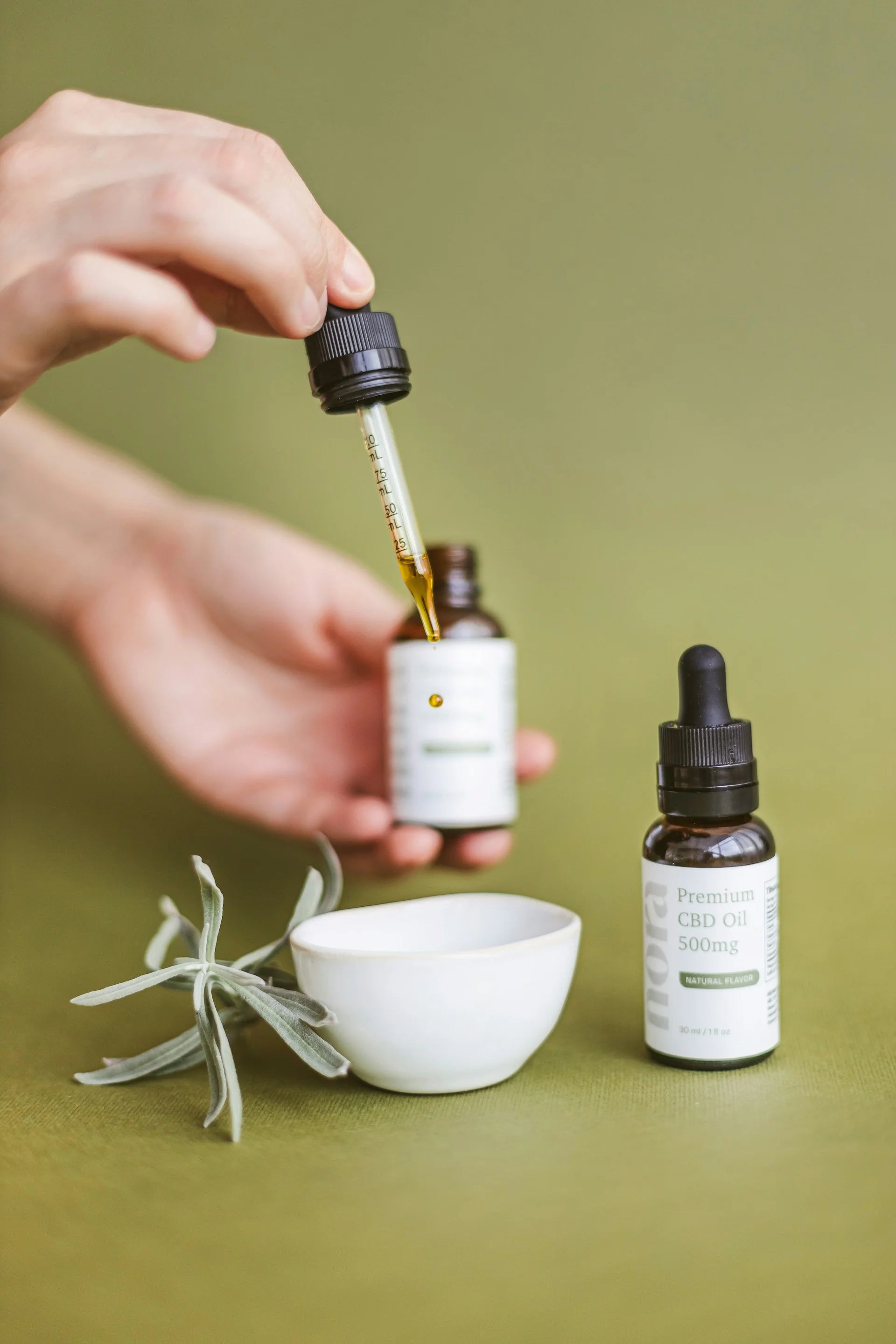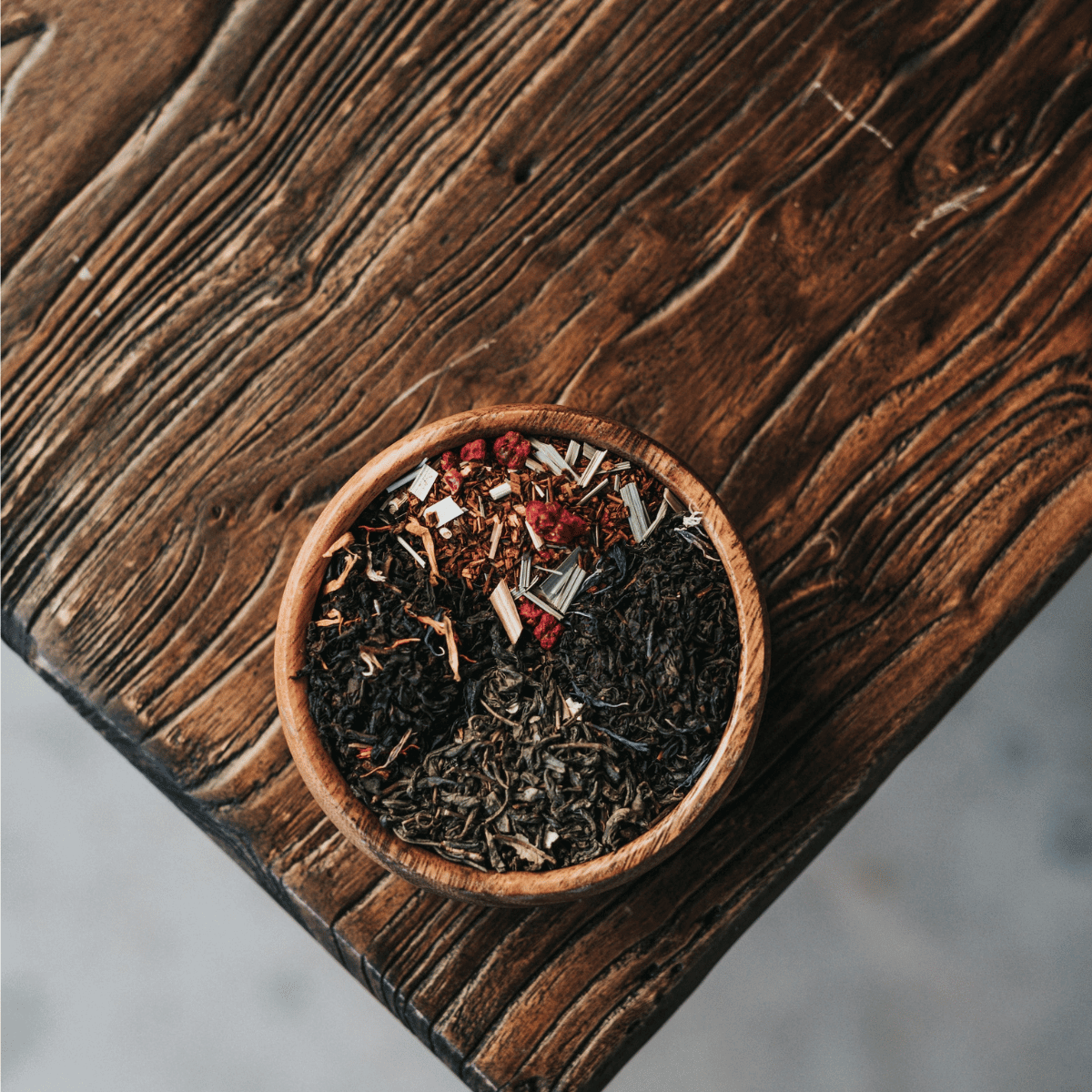Sage (Salvia) is an herb family that has over 900 different species, and has just as many different uses. Most popular for its food-grade aromatic properties, it is also widely used as a medicinal herb around the globe, from North America to East Asia, in spiritual rituals commonly called smudging and last but not least, as an important smokable herb in herbal blends.
Can smoking sage get me high?
Of course for all the veteran internet lurkers, you probably remember the incredibly funny, or sad trend (the jury is still out on this one) of people humiliating themselves by filming their salvia smoking trip and posting it online during Youtube's glory days when this smokable herb was sold over the counter in headshops, smoke shops and even certain convenience stores.
First of all, we'd like to clarify that there's really no risk of getting high if you overdo it with sage in your next spaghetti sauce, as this effect is only present when ingesting Salvia Divinorum (Sage of the Diviners), a smokable herb native to Mexico, and although salvia was most popular when smoked in a bong or pipe, ingesting sage tea also could get you high, as well as chewing it although this last one must've been a bit less enjoyable.
Weirdly enough, even with its unpredictable intensity and opioid-like compounds that gives salvia its hallucinogenic properties, smoking salvia is still legal in the USA and many other countries. It is important to note that it has been banned in some States and is most definitely out of the spotlight due to the severe side effects of smoking salvia akin to mescaline that were pretty much the literal definition of "tripping balls".
So for all you people Googling does smoking sage make you hallucinate and reading this : yes, yes it does, BUT only a specific strain of mexican sage, not in a super fun way, and know that smoking salvia can make you sick and/or humiliated online (one is temporary, the other is forever). Plus you probably won't be able to find any salvia for sale near you and, there's lots of other fun legal herbs more easily accessible anyway.
We do want to specify that although this smokable plant has been abused for its effects, some researchers did study if it could have health benefits.
Keep reading on to get some sage wisdom (get it? ba dum tshhh)
Types of Sage
There are over 900 different types of Sage in the Salvia family, with most of them being native to the Mediterranean region, but the two most prevalent sage varieties are Spanish sage and white sage. Salvia apiana, or common sage, can be found in Mexico and the United States. This plant grows in large areas called chaparral settings or coastal sage scrub. The plants thrive under these settings because of their ability to survive in arid climates. Salvia lavandulifolia, or the Spanish sage, is native to Europe and thrives in Spain and Southern France
Cooking with Sage
Sage is found as an aromatic in pretty much every culture in Europe and around the Mediterranean in some form or another. Sage's distinct aroma with strong notes of mint, pepper and citrus changes slightly between its fresh form and its dried form, but the major difference is the slightly increased bitterness. Greeks use sage in Loukanika sausages, the French use it in stews and the Italian use it in sauces, for pasta of course!
Smudging Sage
Carnosic acid, camphor, phenolic acid, and carnosol are some of the constituents of sage that are believed to have healing properties. Camphor is an oily compound that gives sage its uniquely noticeable strong scent. Camphor is also one of the compounds used in ointments and creams that activates nerve endings and produces a cool or warm feeling upon gentle application.
It might be those highly fragrant compounds that gave Sage its reputation as a ward for evil spirits and used since time immemorial by Native Americans by wrapping plant, herbs and resins in a smudge stick, and then burning it over a clay bowl while chanting prayers. The resulting smoke cloud from this sage burning ceremony is believed to be a bridge between the mortal and spiritual world, lifting away any sadness, impurities or negative energy whilst allowing good spirits to take their place.
Smoking sage
Interestingly enough, there are two ways that sage can be used for its smoke benefits.

Photo by Kampus Production from Pexels
First, sage is a crucial element of certain herbal smoking blends as a supportive and aromatic herb. The low content in stems and light structure allows this smokable herb to provide a subtle peppery and citrusy flavor when inhaled, and reduces the sometimes aggressive sensation of burning in the throat. Today, you can buy smokable herbs, commonly called herbal blends or herbal rolling fillers, in many online headshops and smoke shops and even find herbal smoking blends on Amazon! Unfortunately, the trend of natural tobacco alternatives and smoking herbs or smokable flowers in general is still relatively niche so it will take some time to find herbal smoking blends near you in your favorite headshop.
Secondly, using dried sage in a smoking gun is a technique made famous internationally by renowned chef Heston Blumenthal and the sage smoking gun trend has since been replicated by other chefs and even mixologists like this smoking blackberry sage margarita which would be a guaranteed hit for your next halloween party!
What are the benefits of sage?
Back on a more serious note, the benefits of Sage leaves have also been referenced in numerous herbalist books over several centuries, notably the ___ and still used for natural healthcare treatments and protective effects ranging from antimicrobial to antioxidant, as well as spiritual purifying by burning sage bundles (smudging), which is believed to get rid of negative energy.

Photo by Eva Elijas from Pexels
What are the benefits of burning sage?
Although it is frequently recommended as a healthcare treatment in different forms typically used in natural healing like essential oils, herbal teas or even herbal smoking blends, always consult your doctor before ingesting or smoking any medicinal herb as some s
What are the health benefits of sage?
Every culture that has a strain of Sage growing in their region has its own extended list of sage health benefits, but as usual, although we respect the craft and expertise of herbalists and natural healing practicioners, at Spliff Herbals we try to stick to the hard science, and what has been or can be proven in properly conducted scientific research.
Over the centuries, many experts and researchers have explored the benefits of sage and its chemical compounds in mitigating and treating prevalent health disorders, from alzheimer's disease to heart disease and even antimicrobial properties.
So, does sage actually have health benefits, or any effect at all really and if so, how does it work? Find out below!
Anti-Inflammatory Effects
Sage may help with inflammatory diseases like sunburns, sore throats, tonsillitis, among many others.
According to 2009 research, an oral spray containing echinacea and sage effectively remedied a sore throat as a mix of lidocaine and chlorhexidine. These are prescription drugs that are usually generally used during oral anesthetics.
According to 2013 research, sage oil possesses antibacterial and anti-inflammatory properties, making it helpful in managing minor inflammatory skin problems such as folliculitis and sunburn.
These characteristics also help ease tonsillitis discomfort and expedite the recovery of cold sores when used as an ointment or salve.

Improved Memory
Sage might also boost recall and mental processing, including in Alzheimer's disease patients. While the findings remain limited, a research published in 2017 revealed that some chemical compounds in sage could affect biological mechanisms linked to cognition. It stated that caffeic acid and rosmarinic acid, two forms of phenolic acids present in sage, affect brain receptors and boost wakefulness and cognitive functions in rats. Additionally, an improved mood is an additional benefit as it helps in alleviating stress and anxiety.
Improved Cholesterol
According to a study, sage stimulates the PPAR gamma molecule, which helps to reduce levels of cholesterol in the body. The study showed that people who used 400 mg to 1500 mg of sage every day either in herbal tea, supplements, or powder for twelve weeks saw an instant change in their blood lipids. The findings were as follows;
- Total cholesterol concentration decreased by 16 to 20%.
- LDL cholesterol levels decreased by 12%.
- The amount of HDL cholesterol in the blood increased by 20%.
- The triglycerides in the blood decreased by 18%.
Hot Flashes
Women going through menopause frequently experience hot flashes and night time sweats. According to a study, a 100 mg daily intake of Salvia officinalis administered orally for two months lowered the occurrence of these and other symptoms of menopause.
It also seemed to do that without affecting hormone balance in the body. This demonstrates that while sage might aid with menopause symptoms, it will not help women with irregular periods, predominantly controlled by hormones.
Benefits of smoking Sage
Because sage's taste can be a bit overwhelming when smoked on its own, this smokable herb is frequently combined with other legal herbs to smoke that are less intense in aroma and flavor, like Mullein, Lemon Balm and even Mint and peppermint.
Nicotine-free smokable herbs are a good natural alternative to addictive substances like tobacco since herbal smoking blends don't have Nicotine.
People who wish to give up on unhealthy cigarette smoking habits or progressively diminish their nicotine addiction can gradually mix tobacco with smokable herbs like sage or Passionflower, Damiana, Rosemary, Hops and even Rose Petals!
For the folks out there looking to stop smoking or reduce smoking, herbal tobacco replacements are ideal to completely eliminate nicotine addiction without doing a clean break with the habit of smoking. Giving up smoking can be difficult, so you can always try using different methods to see what make things easier for you. If you really want to smoke but are looking for a different alternative to nicotine, you'll also need to be equipped with the best accessories out there.
In conclusion : Does smoking sage hurt you?
The science behind sage smoking is still thin, but its long standing presence in natural healing throughout history is definitely not negligible. In conclusion, if you are looking for an answer on is smoking sage good for your lungs, we want to remind any of our readers that inhaling any type of smoke is bad for the human body due to the presence of chemicals like carbon monoxide, tar and polyphenols which have been directly linked to multiple lung illnesses, among other things.
Always smoke sage in moderation and under the guidance of a medical practitioner or an expert and never, ever smoke sage during a pregnancy or in the presence of children.
*This article is not to be interpreted as a statement of any form by Spliff but merely a compendium of information compiled from other sources. These statements have not been evaluated by Health Canada, FDA or any other regulatory body. Consult your doctor before ingesting or smoking any herbal product.*
Wanna learn more about Sage? Browse our sources below!
Wikipedia Contributors. (2019, December 8). Salvia divinorum. Wikipedia; Wikimedia Foundation. https://en.wikipedia.org/wiki/Salvia_divinorum
WHAT IS SALVIA DIVINORUM? (n.d.). https://www.dea.gov/sites/default/files/2020-06/Salvia%20Divinorum-2020_0.pdf
Zhang, Y., Butelman, E. R., Schlussman, S. D., Ho, A., & Kreek, M. J. (2005). Effects of the plant-derived hallucinogen salvinorin A on basal dopamine levels in the caudate putamen and in a conditioned place aversion assay in mice: agonist actions at kappa opioid receptors. Psychopharmacology, 179(3), 551–558. https://doi.org/10.1007/s00213-004-2087-0
Sage: Health benefits, facts, and research. (2018, January 10). Www.medicalnewstoday.com. https://www.medicalnewstoday.com/articles/266480
Salvia apiana. (2021, April 29). Wikipedia. https://en.wikipedia.org/wiki/Salvia_apiana
Salvia lavandulifolia. (2021, April 29). Wikipedia. https://en.wikipedia.org/wiki/Salvia_lavandulifolia
Loukanika - Greek Sausage Recipe. (2018, May 5). Www.greekboston.com. https://www.greekboston.com/food/loukanika/
Brown Butter Sage Sauce • CiaoFlorentina. (2016, October 20). CiaoFlorentina. https://ciaoflorentina.com/brown-butter-sage-sauce/
Native American Smudging. (2020, May 19). Www.powwows.com. https://www.powwows.com/native-american-smudging/
Blackberry Sage Margarita Recipe. (2017, October 25). Wicked Spatula. https://www.wickedspatula.com/blackberry-sage-margarita/
Lopresti, A. L. (2016). Salvia (Sage): A Review of its Potential Cognitive-Enhancing and Protective Effects. Drugs in R&D, 17(1), 53–64. https://doi.org/10.1007/s40268-016-0157-5
Kianbakht, S., Abasi, B., Perham, M., & Hashem Dabaghian, F. (2011). Antihyperlipidemic Effects of Salvia officinalis L. Leaf Extract in Patients with Hyperlipidemia: A Randomized Double-Blind Placebo-Controlled Clinical Trial. Phytotherapy Research, 25(12), 1849–1853. https://doi.org/10.1002/ptr.3506
Rad, S., Forouhari, S., Dehaghani, A., Homeiravafaei, Sayadi, M., & Asadi, M. (2016). The effect of salvia officinalis tablet on hot flashes, night sweating, and estradiol hormone in postmenopausal women. International Journal of Medical Research & Health Sciences, 5, 257–263. https://www.ijmrhs.com/medical-research/the-effect-of-salvia-officinalis-tablet-on-hot-flashes-night-sweating-and-estradiol-hormone-in-postmenopausal-women.pdf







Leave a comment
All comments are moderated before being published.
This site is protected by reCAPTCHA and the Google Privacy Policy and Terms of Service apply.